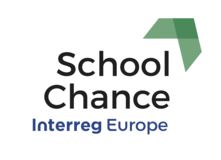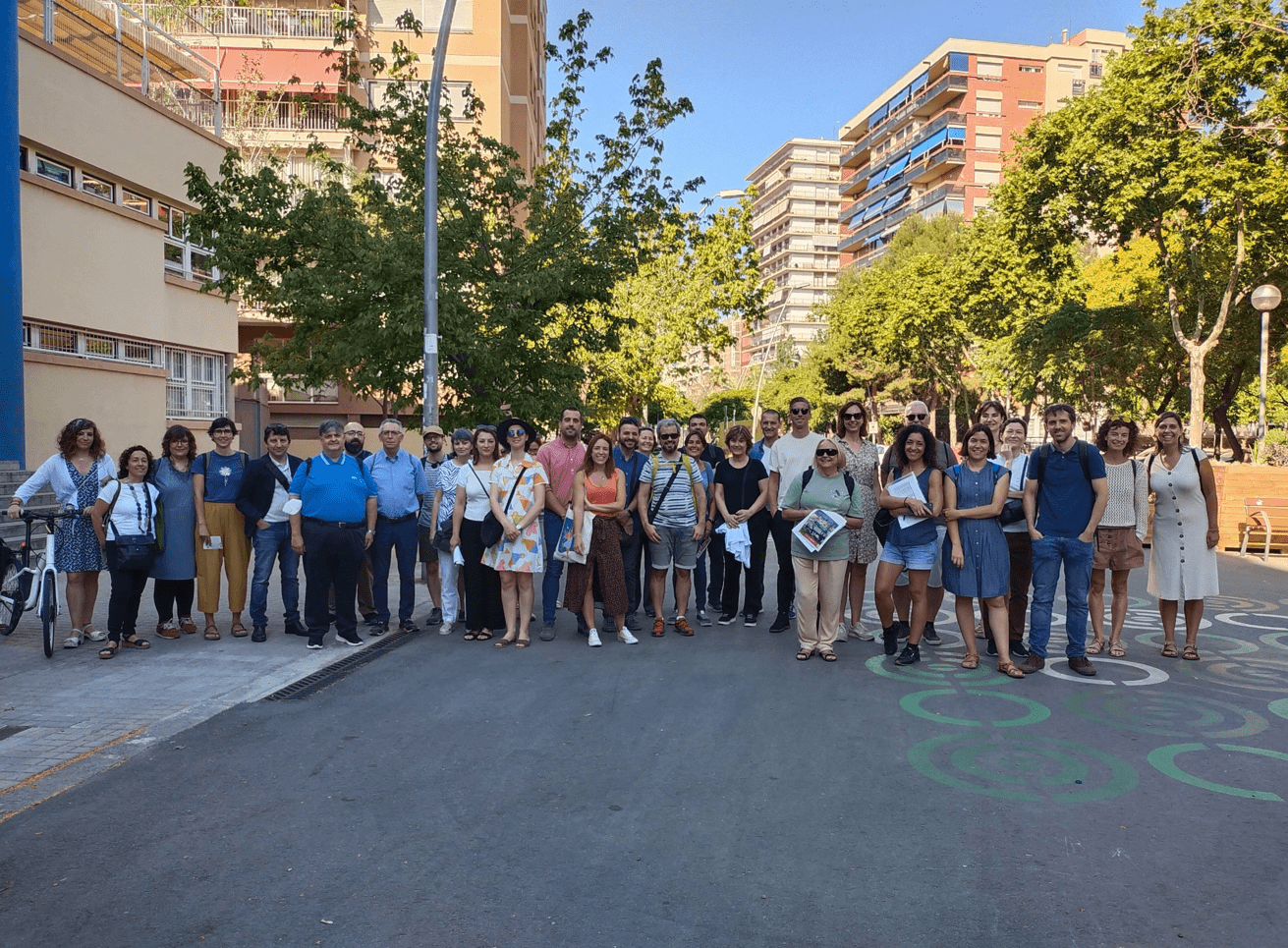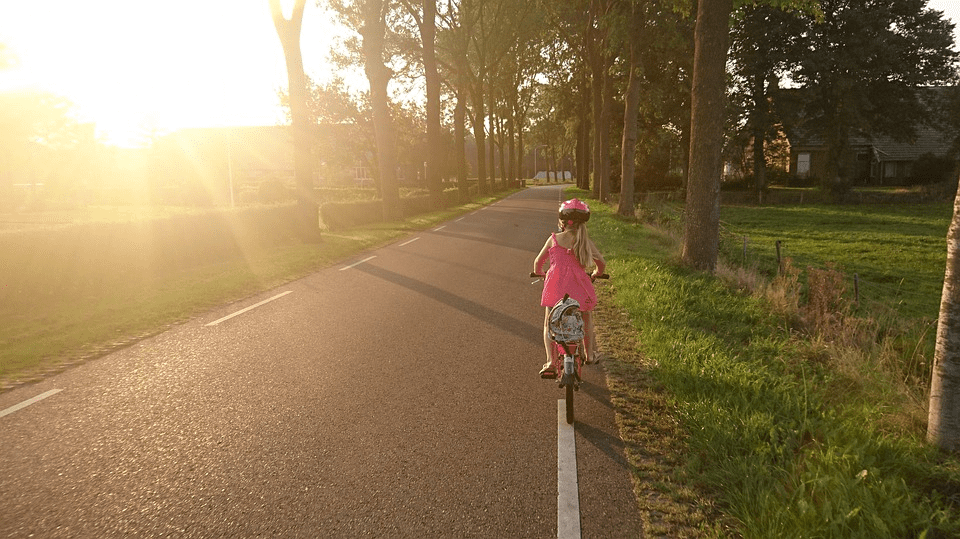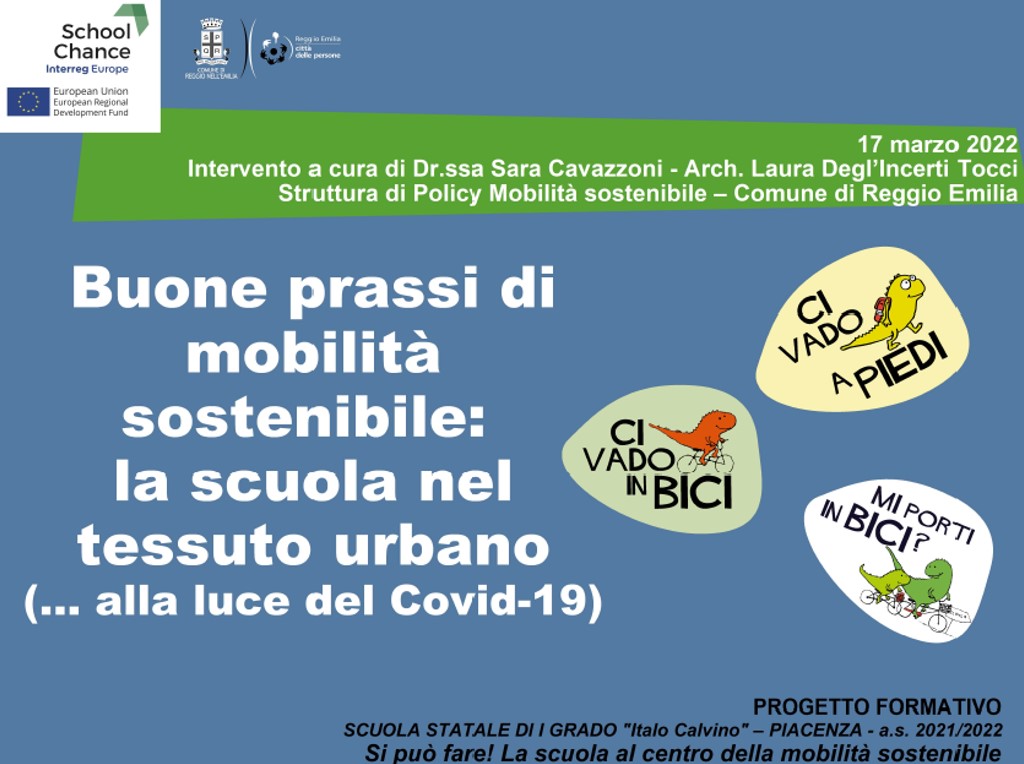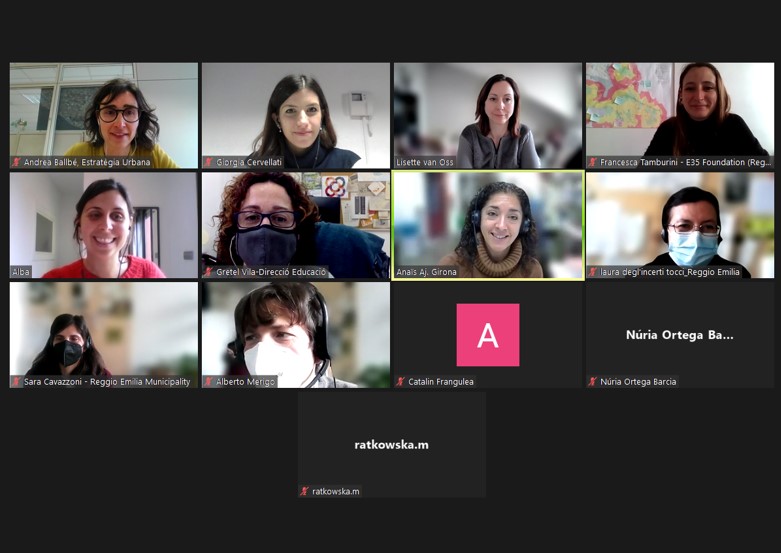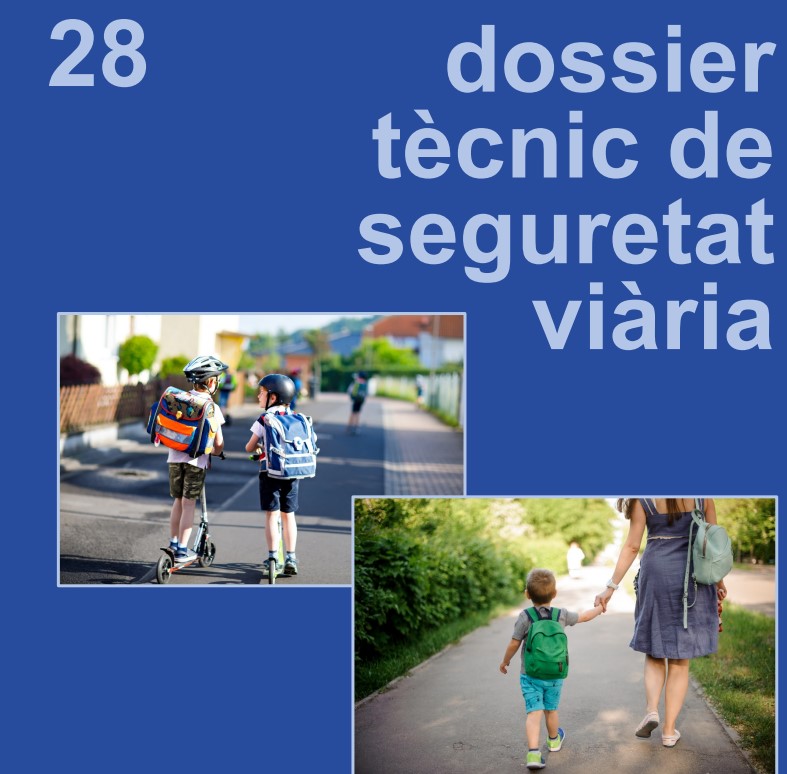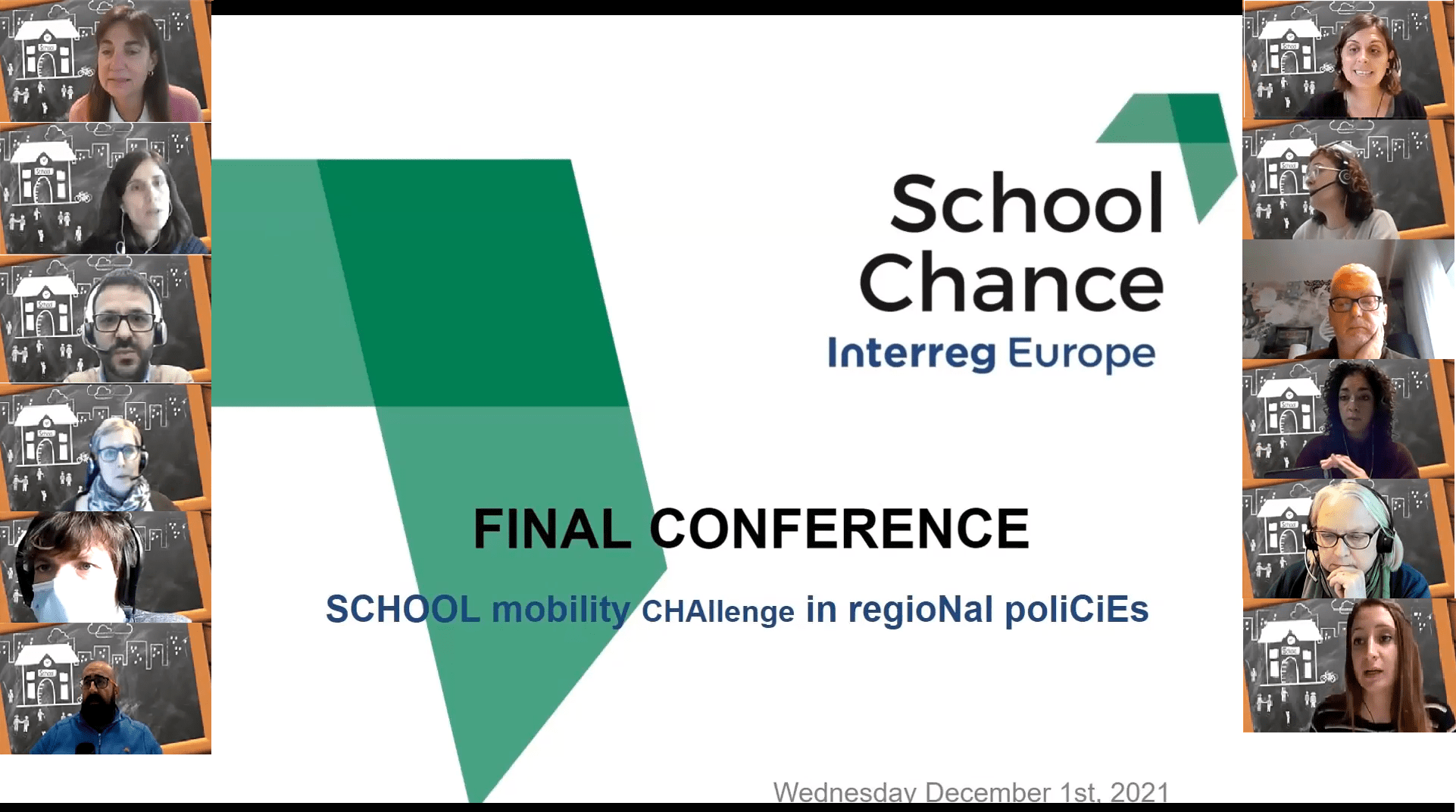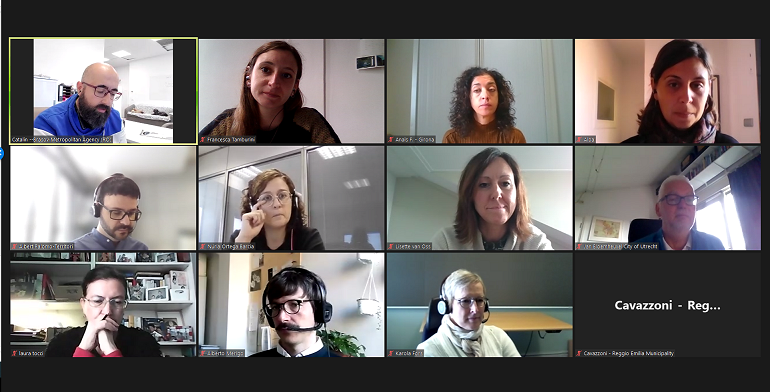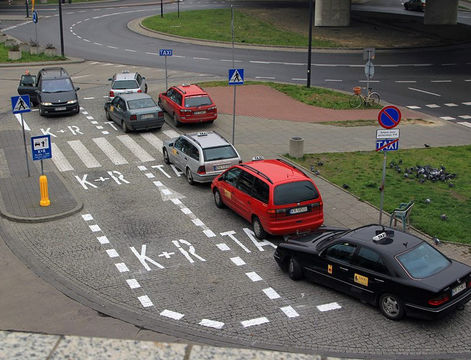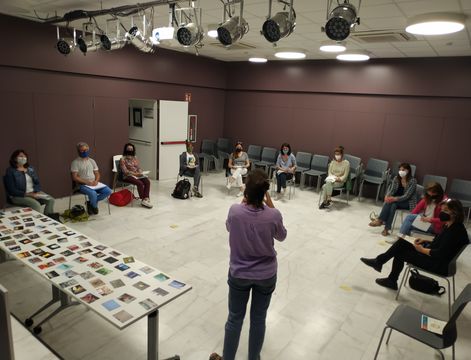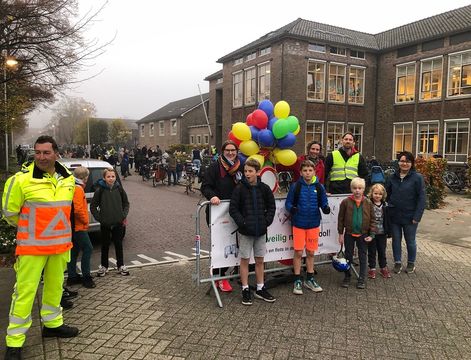Last 10th and 11th October, a delegation of all city partners was hosted by the Municipality of Reggio Emilia for a study visit to exchange local good practices on reduction of CO2 emissions generated by home-school mobility.
More than 20 participants from Brasov, Girona, Gdansk, Utrecht and Gävle could learn about the main projects coordinated by the Municipality of Reggio on the topic, also through visits to some local schools during the entry and exit hours of the students. They also had the chance to experience BiciBus and PediBus, two measures designed to allow students to go to school by bike or on foot in complete safety. A real train of bicycles, made up of students and adults, has been organised in Reggio Emilia schools for over 14 years, through an established and safe route, gathering pupils along the way.
Other activities were also presented to the delegation, such as PrimiPassi. This measure is designed specifically to make children in pre-school age and their families come into contact with eco-sustainable modes of transport and good practices related to the use of urban public space around schools, such as urban tattoos co-created together with children. Another measure that was presented on-site is the creation of temporary car free zones in front of primary and secondary schools. One of the main problems in Italy concerns the school surrounding areas that are not always considered safe because of the huge number of cars used to bring children to school.
The aim of these two good practices is to find innovative ways to keep cars away from these areas, promoting sustainable transport modes also through visual communication activities that directly mark the spaces dedicated to active mobility on the roadway. Launched in 2013 with the first temporary free access area to a school, in 2016 five schools activated this measure and two schools decided to carry out visual communication actions.
The cooperation between schools and the municipality was carefully analysed: measures like the Manifesto, a joint plan designed to promote safe, sustainable and autonomous mobility for home-to-school trips, and the figures of School Mobility Manager, was presented as actions able to increase sustainable home-to-school trips.
Participants were interviewed after the study visit and they really enjoyed the two-days in Reggio. Beyond the general interest about the good practices presented, what partners appreciated the most is the general approach adopted by Reggio Emilia municipality. The overall involvement of families, teachers and volunteers is a challenging objective other cities would like to import in their local context.
Indeed, families have an active role in making the school environment safer, especially grandparents and this is “something culturally less easy to implement into other cultures such as the Dutch one, for instance” – affirms one of the local stakeholders from the City of Utrecht, “but – he continues - it is a good tool to use when talking about traffic education and the closing down of the main road to a school is something I would like to pilot in Utrecht”.
At this purpose, a teacher from Brasov (Romania) finds that “involving parents and openness of school is a proof for perfect cooperation between teachers, children and their parents and protectors. A very important step to implement such "revolutionary" solutions is to have support in local politics and clearly defined goals in the city's strategy”. She also adds, “We want to conduct pilot studies and implement solutions in a few selected schools, which are open to implement our proposals”.
Participants will bring home new ideas and inspiration from Reggio experience; let’s see what will be transferred during the next project phase: transfer workshops! Stay tuned!
